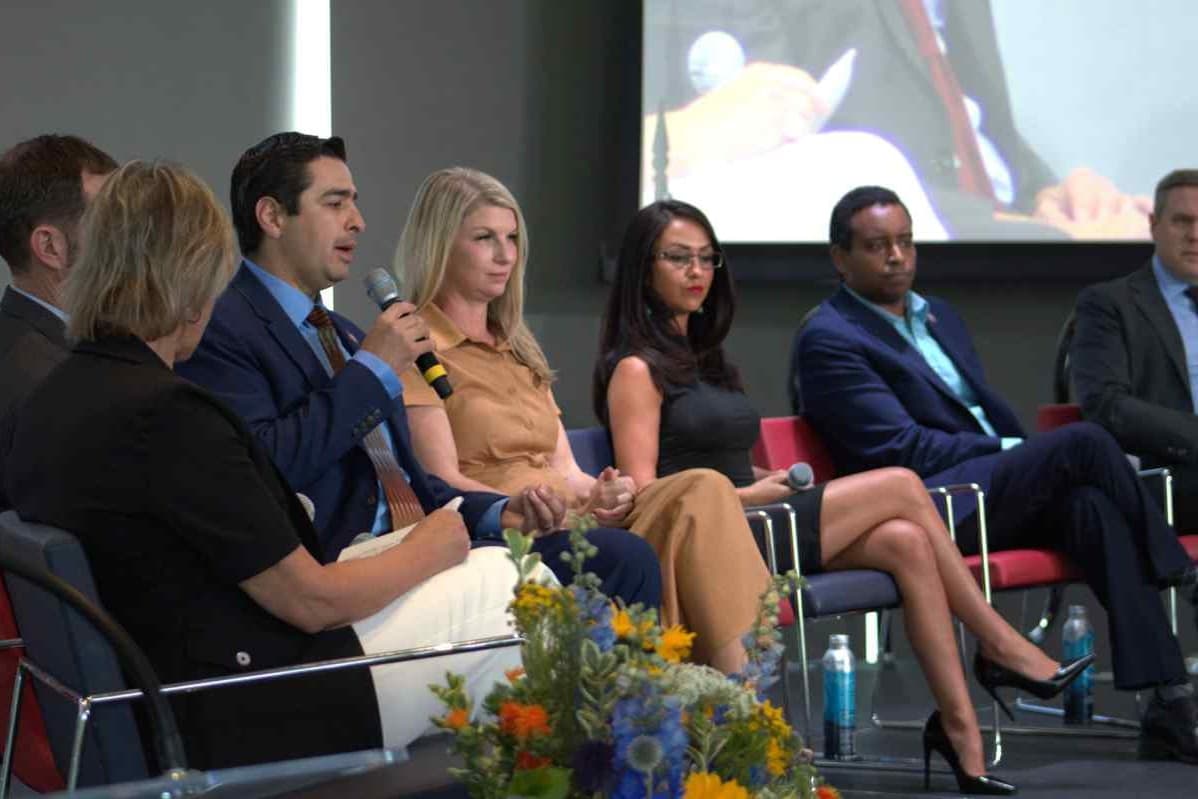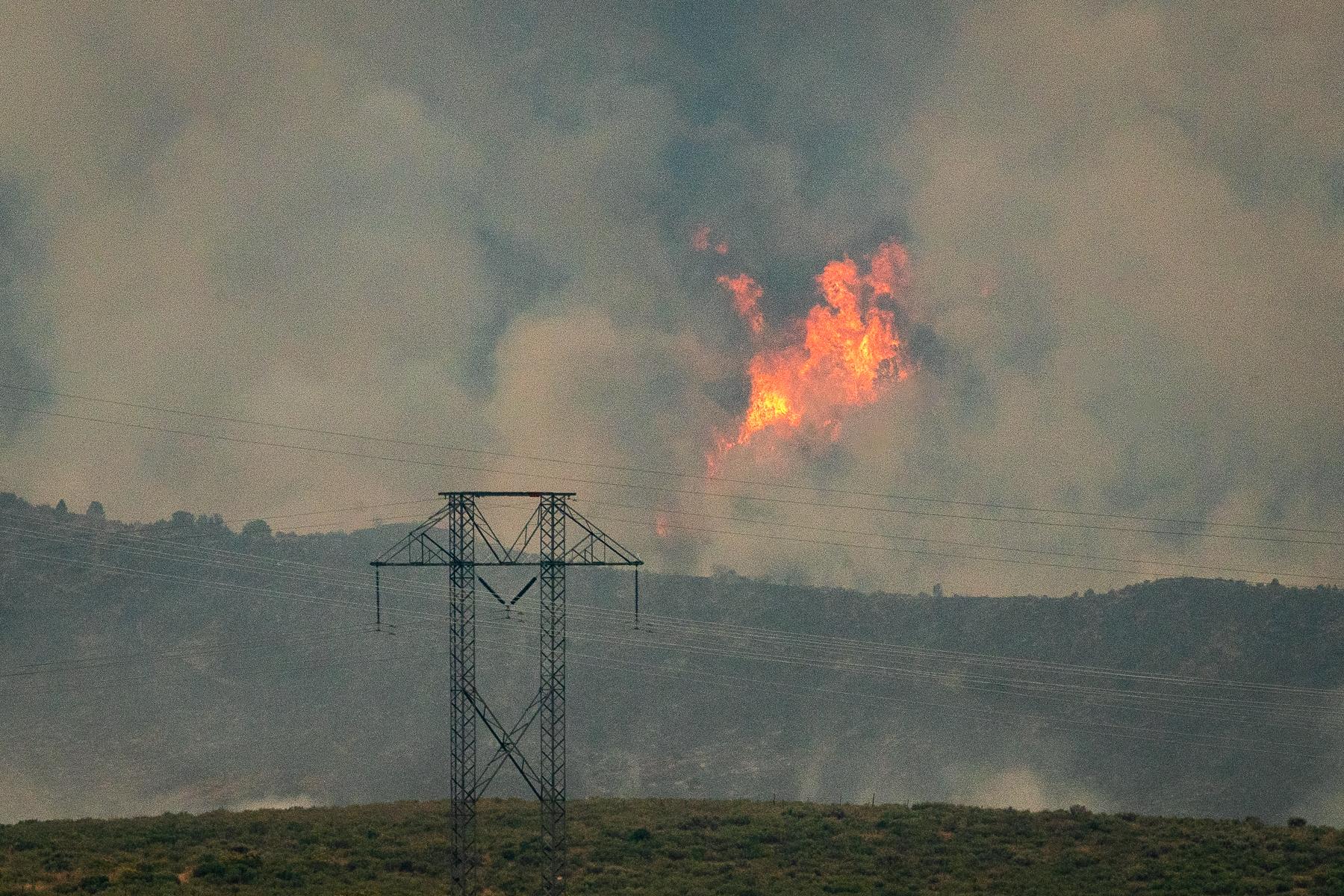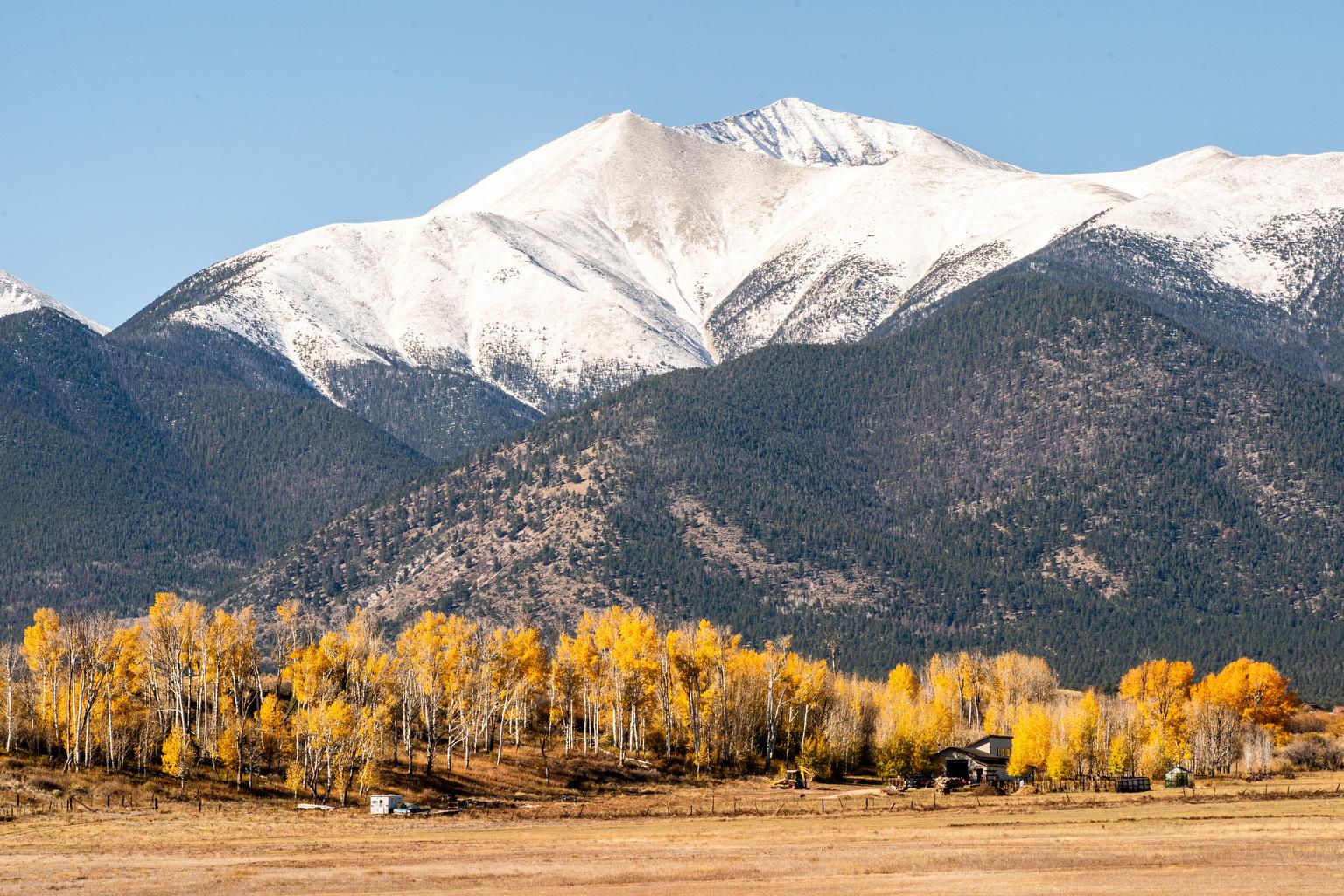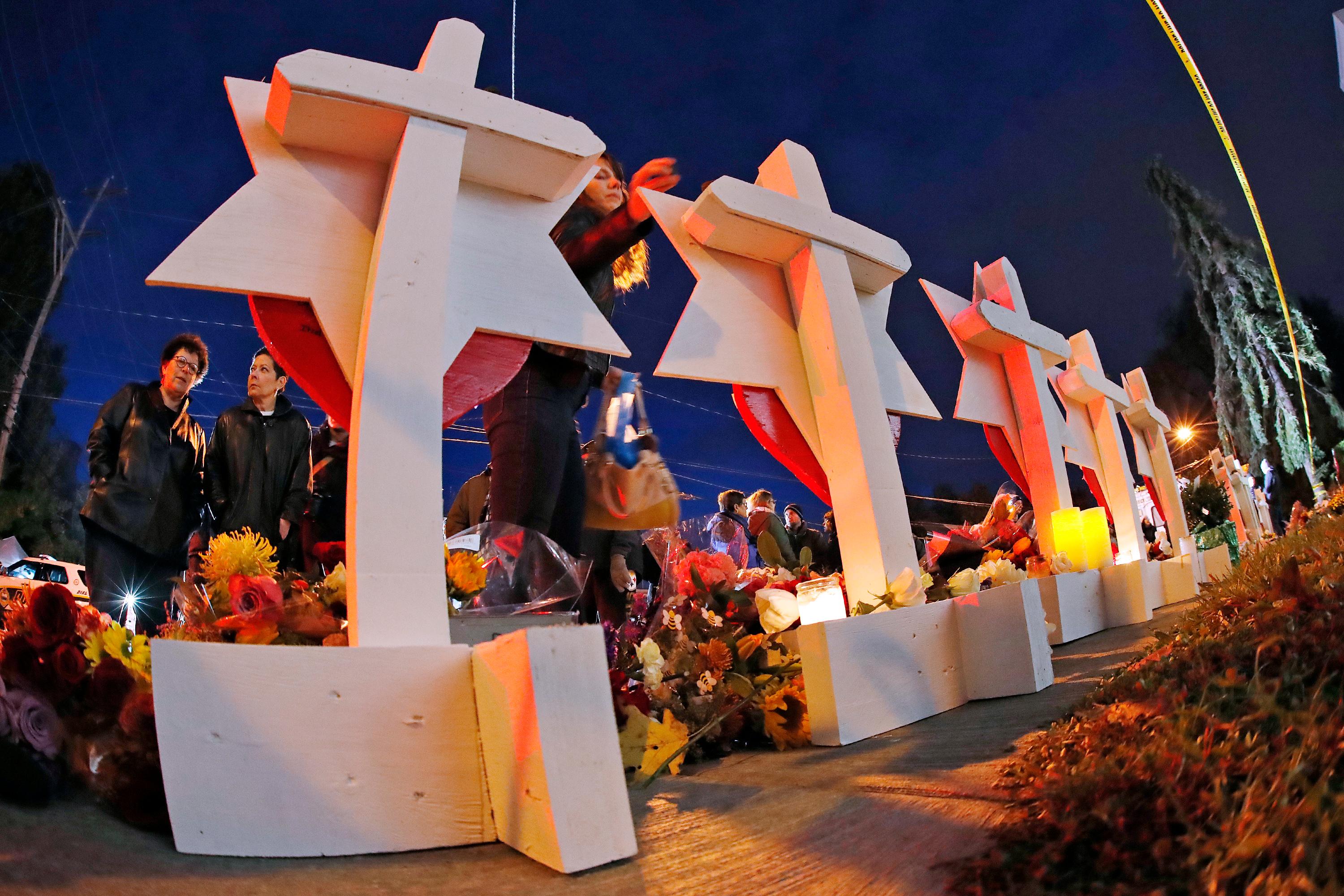
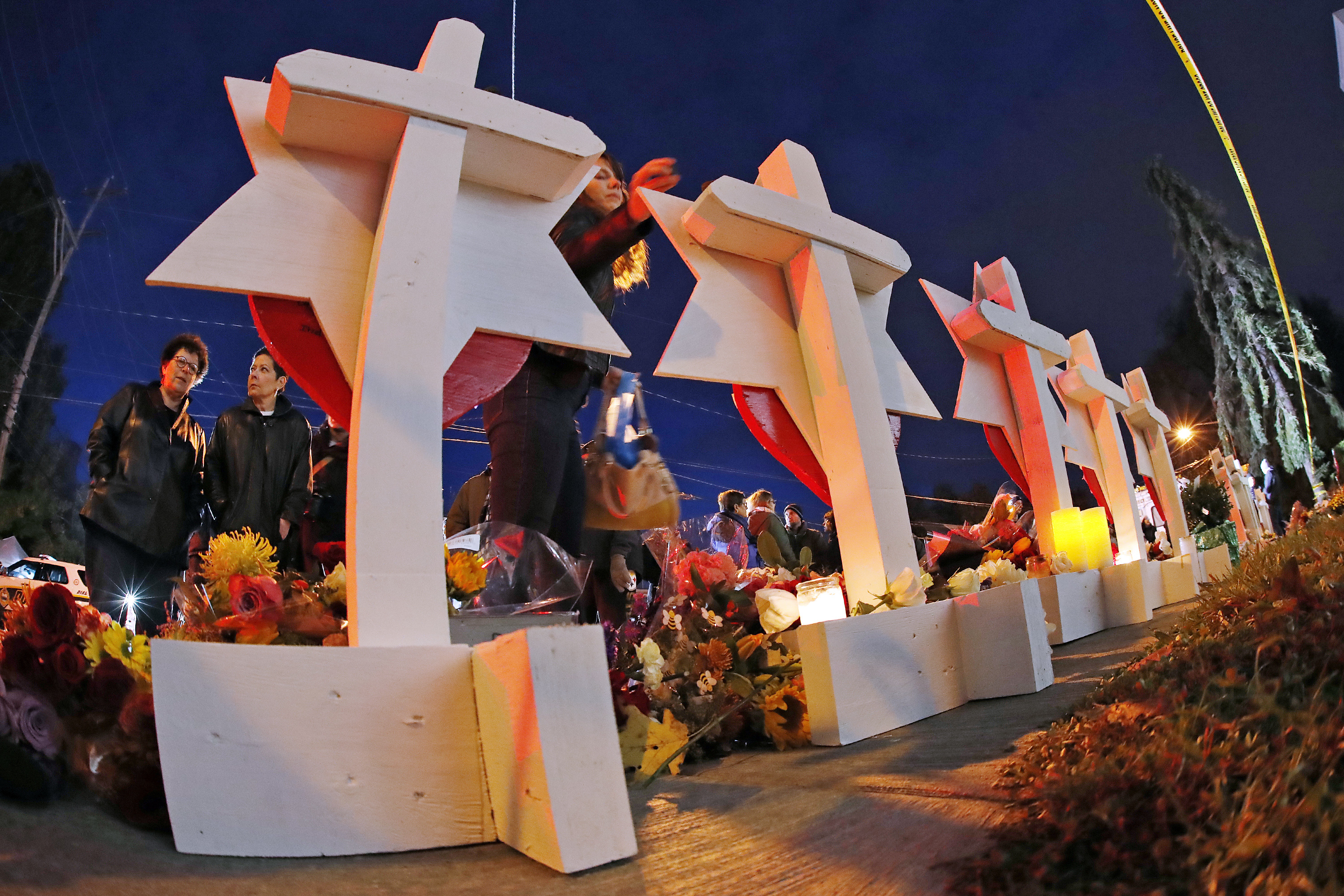
A mass shooting that killed 11 congregants at the Tree of Life synagogue in Pittsburgh on Saturday has brought the topic of anti-Semitism into harsh focus across the United States. And in Colorado, there has been a spike in hate crimes and white supremacist activity, according to the Anti-Defamation League.
That increase, the group says, mirrors a national rise in bias incidents. But it's a daunting task to get a firm grasp on how prevalent these incidents are in Colorado, or any state, because there’s no uniform way of reporting the issue.
The Anti-Defamation League reported a 60 percent increase in anti-Semitic incident last year, which the nonprofit classifies as incidents of harassment, vandalism or assault. A crime does necessarily have to be reported to authorities. In Colorado, there were 18 such incidents in 2015 -- which shot up to 60 incidents just last year.
Scott Levin, the executive director of the ADL’s mountain states region, and who helped organize Sunday’s solidarity vigil in Denver, says Colorado is on track to match or exceed last year’s number of anti-Semitic incidents.
“It can be everything from somebody that has painted a swastika on a Jewish institution, to somebody that is being verbally assaulted while they’re standing in line at the grocery store because they’re Jewish,” he said.

Levin said that this year also marks a spike in white supremacist activity in Colorado -- 50 incidents, according to ADL.
“That would be everything from posters that are being put up on college campuses all around Colorado, to leafleting and flyering as well as people who are dropping banners over the side of highway overpasses proclaiming some danger to the white race, or a need to act up at this time," he said.
The ADL’s numbers, though, are just one set of numbers. Across the country, “bias motivated incidents,” as they’re sometimes called, are tracked differently depending on who's doing the tracking. Getting a complete tally of all those kinds of incidents in Colorado is difficult.
“You can get numbers but the accuracy of those numbers is questionable,” said Rachel Glickhouse, who manages ProPublica’s Documenting Hate project to build more comprehensive data on hate crimes.
Glickhouse pointed out that when it comes to ADL or other nonprofits, the incidents they’re tracking may not rise to the level of an actual reported crime. And if you are looking for data on bias-motivated crimes, Glickhouse says there’s a number of reasons why law enforcement data may not be as reliable. Even FBI data.
“The FBI collects those numbers from local law enforcement agencies, who in turn, are supposed to keep track,” she said. “We just have found a huge variety of ways that police go about tracking these on forms, on internal systems, and we’ve just found so many problems with how they are actually tracked, internally, and we’ve found undercounting and overcounting.”
Glickhouse also pointed to a 2015 survey by the federal Bureau of Justice Statistics that found more than half of people who were targeted by a possible hate crime did not report it to police (complicating matters further, the report estimated that Americans experienced 250,000 hate crimes on average per year).
Last year, the Denver-based Matthew Shepard Foundation dug deeper into those numbers, to learn more about why people don’t report. While they’ve only collected a few responses, they’re nonetheless illuminating. Several respondents were not sure sure if what happened to them was a crime. Others cited fear, or uncertainty that police would help.
With all of those caveats in mind, the last available year of FBI data -- 2016 -- showed 104 reported hate crimes in Colorado. New numbers for 2017 are expected in November.
While law enforcement, researchers and congregations try to wrap their heads around the threats and violence, the mourning in the Pittsburg and beyond continues -- including in Colorado.
Less than 24-hours after the gunman struck in Pittsburgh, Denver’s Temple Emanuel held a solidarity vigil. Emanuel is one of the oldest, largest synagogues in the Rocky Mountain region, and Rabbi Joe Black there said he had never seen it so full.
“Our sanctuary was completely full,” he said. “We added as many folding chairs as we could, we had people sitting in the aisles, standing in the back, and then there was several hundred people -- as I’m told because I didn’t see it -- in the foyer, and then another several hundred people sitting in chairs in our social hall where the audio was piped in.”
The moving ceremony -- which featured speeches by Gov. John Hickenlooper and Denver Mayor Michael Hancock -- was, as Black described it, a balm for a troubled community. He looks forward to a series of events in November hosted at Emanuel called “Talking it Out: Getting to Agreement” that aims to decrease violence and increase dialogue. But Black says his own community was troubled by anti-Semitism long before Saturday’s shooting.
“As a rabbi, whenever a member of my congregation is touched -- whether it’s something that happens at school, or at work, or at an event where a building is defaced -- I’m the first to get the call,” Black says. “And I do see it, and I do counsel a lot of people as a result of that.”
Black adds that even his own house of worship has had to adapt.
“We at Temple Emanuel have had to change our security procedures over the last two years, largely because of the rhetoric and the response to the rhetoric that we see coming from the highest offices in the land.”

